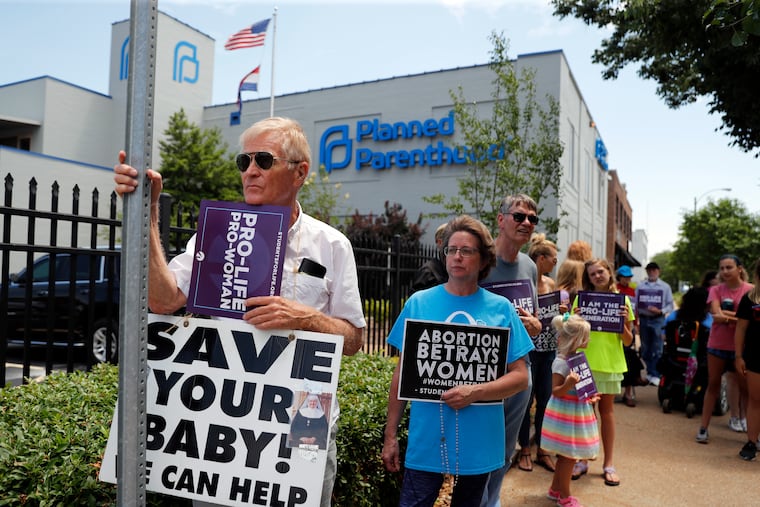Antiabortion activist sues to get Pennsylvania providers’ identities
Abortion providers are subject to harassment and even violence. A Pennsylvania Commonwealth Court panel has to decide whether that troubling reality means state public records should keep providers’ identities confidential.

Last spring, the Pennsylvania Department of Health fulfilled an antiabortion activist’s request for licensing records of abortion clinics — but not until officials blacked out medical providers’ names and personal information.
This week, Commonwealth Court judges heard arguments in the lawsuit that the activist, Jean Crocco, filed to fight the redactions, which were upheld by the state’s Office of Open Records.
The defendants — the Health Department and the nine clinics — say the identities of abortion providers are exempt from disclosure under the personal safety exemption of the state’s Right-to-Know law. They presented reams of data and affidavits describing antiabortion harassment and violence against abortion providers.
“Disclosing providers’ identities will endanger them and the public they serve,” says the legal brief of the clinics, represented by the Women’s Law Project.
Crocco, a nurse who works for the Chicago-based Pro-Life Action League, counters that the exemption is being used "to protect a regulated industry at the expense of the public’s access to important information about abortion services.”
Her lawyer, Thomas Olp of the Thomas More Society, a law firm that represents abortion opponents, was blunter on its website.
“Abortionists are being protected by the Pennsylvania Department of Health. … It was that department’s poor supervision that allowed Kermit Gosnell’s atrocities to go undetected for years,” Olp wrote, referring to the infamous West Philadelphia abortion doctor now imprisoned for murdering infants born alive.
The Gosnell case led Pennsylvania to pass a 2013 law that regulates abortion clinics as outpatient surgery centers. Across the country, many other states have imposed stringent new requirements on clinics. One side effect has been a bounty of public records that antiabortion activists can mine. Prominent activist Abby Johnson, for example, has used inspection reports to create a website, checkmyclinic.
Crocco, 66, has spent the last seven years combing public records in Illinois to check for deficiencies, violations, and disciplinary actions involving clinics and abortion providers. She claims that when she finds a problem, she informs state agencies “to improve the quality of medical care in abortion facilities.”
“The public has a legitimate interest, just as the government does, in exercising oversight with respect to abortion providers,” her legal papers say. “The fact that serious moral disagreements exist over abortion should not obscure this fact. Crocco is performing a valuable public service.”
When she appealed to Pennsylvania’s Office of Open Records, Crocco did not object to the Health Department’s redaction of medical providers’ personal emails and addresses. But she expanded her demand for names to include owners, trustees, and board members affiliated with the nine clinics.
The clinics include a Drexel University group of obstetricians-gynecologists, the Mazzoni Center, Allegheny Reproductive Health Center, Allentown Women’s Center, and Planned Parenthood Southeastern Pennsylvania.
In a sworn statement, the medical director of the Allegheny center wrote: “Recently, I learned from colleagues that a man with an assault weapon was coming to Pittsburgh to find and kill a doctor who had provided the man’s girlfriend with abortion care. … I reasonably believe that the release of identifying information will expose us to a heightened risk of physical harm.”
In his affidavit, Garrison E. Gladfelter, chief of the state Health Department division that oversees clinics, cited National Abortion Federation data tallying 2,622 reports of violence, including murder, and 281,639 acts of disruption between 2010 and 2017.
Crocco’s brief dismissed the evidence as irrelevant because it is “statistical” and “anecdotal.”
She also submitted a copy of a 2016 agreement that she and the Pro-Life Action League reached in a case similar to the current one. After she sued the Illinois Department of Health to get unredacted abortion clinic records, the agency consented to provide the names and any license numbers of clinic owners, physicians and medical staff.